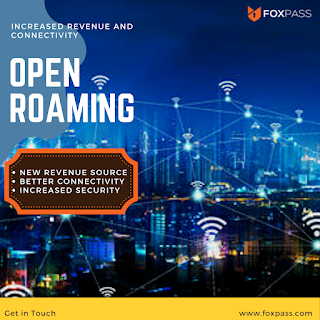OpenRoaming brings in and combines together an alliance of networks and identity providers, letting users join any network managed by an alliance member. Companies who join OpenRoaming secure assurance that their Wi-Fi networks automatically interoperate with each other to bring in an automatic and secure connected Wi-Fi experience.
Foxpass
Foxpass is developed by engineers and IT professionals to
assist engineers and IT professionals. It is a cloud-hosted (or on-premise)
service that provides LDAP, RADIUS, self-service SSH Key Management, and server
access control. The platform offers cloud-hosted access control for servers and
WiFi.
Foxpass is a completely certified WBalliance/OpenRoaming
partner. Their OpenRoaming Hub lets customers seamlessly connect to WiFi, plus
the capability to create revenue from existing wireless networks. The devices
that can be used on OpenRoaming are iPhone, iPad, Android, MicrosoftTablet, and
Windows (that will be launched soon).
OpenRoaming Benefits
Foxpass Offers
The Benefits of Foxpass's OpenRoaming services include
gaining money off of your unused bandwidth and from the wireless infrastructure
you have already deployed because customers will seamlessly connect to your
network. Foxpass ensures brilliant wireless coverage in your location so your
customers won't have to go anywhere else for getting a better signal. They will
offer higher and more reliable coverage for your employees or IoT devices. Your
credentials will be encrypted end-to-end with modern algorithms for higher
security. You can also choose for your visitors to view your website after
log-in if you want.
Why Choose Foxpass
for OpenRoaming
This system is brought in the clouds and due to this reason,
Foxpass's OpenRoaming hub can easily handle variances in load sizes without any
hassle. The platform ensures and guarantees excellent wireless coverage
throughout the location of their clients so that they don’t lose customers due
to weak signals and networking issues. Telecom providers in return for these
offered services can pay you for their bandwidth used at your facility by their
customers that will lead you to gain money from the wireless infrastructure
you've already deployed. Foxpass is SOC2
compliant that is even used by government agencies due to the end-to-end
encryption modern encryption algorithms.

Comments
Post a Comment